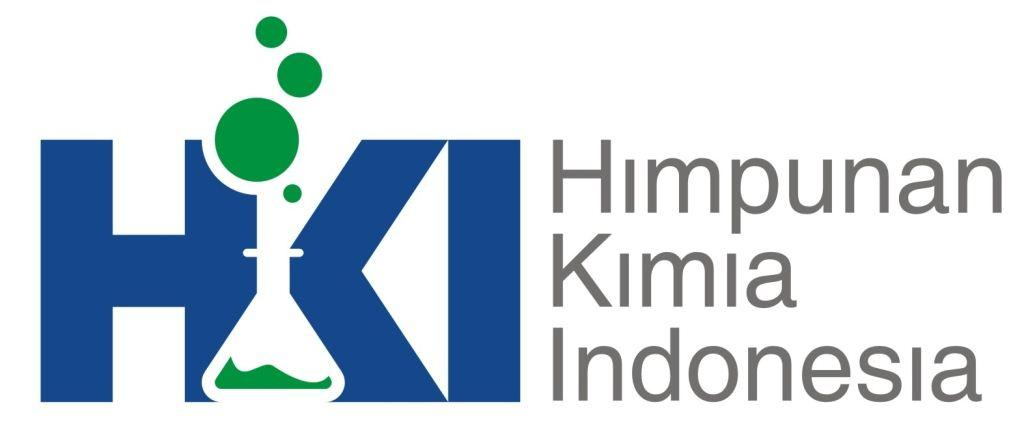Tea Constituent in Protecting Glyphosate Effect on Human Breast Cancers Cells (MCF-7) Growth
Abstract
Glyphosate, which has been documented as a contaminant in tea, promotes the proliferation of human breast cancer cells (MCF-7). Tea, on the other hand, includes various antioxidants, including epigallocatechin gallate (EGCG), which may protect against cancer cell proliferation. The purpose of this research is to determine the preventive effect of concentrated brewed green tea on MCF-7 development caused by glyphosate. The glyphosate concentration that promotes MCF-7 development was determined using a serial concentration of glyphosate. Glyphosate concentrations of up to 64 mg/L were shown to have no effect on MCF-7 cell proliferation. Concentrated brewed tea and EGCG 200 mg/L have the potential to suppress MCF-7 cell proliferation in the presence of glyphosate up to 512 mg/L. The combination of glyphosate and concentrated brewed tea or EGCG protects against glyphosate toxicity via altering the expression of tumor suppressor protein (p53).
Keywords
References
Müller B. Glyphosate—A love story. Ordinary thoughtlessness and response-ability in industrial farming. J Agrar Chang. 2021;21(1):160-179.
Sang Y, Mejuto JC, Xiao J, Simal-Gandara J. Assessment of glyphosate impact on the agrofood ecosystem. Plants. 2021;10(2):405.
Hardell L, Carlberg M. Lost opportunities for cancer prevention: historical evidence on early warnings with emphasis on radiofrequency radiation. Rev Environ Health. 2021;36(4):585-597. doi:10.1515/reveh-2020-0168
Guyton KZ, Loomis D, Grosse Y, et al. Carcinogenicity of tetrachlorvinphos, parathion, malathion, diazinon, and glyphosate. Lancet Oncol. 2015;16(5):490-491. doi:10.1016/S1470-2045(15)70134-8.
International Agency for Research on Cancer. IARC Monographs on the Evaluation of Carcinogenic Risks to Humans.; 2014.
Lueken A, Juhl-Strauss U, Krieger G, Witte I. Synergistic DNA damage by oxidative stress (induced by H2O2) and nongenotoxic environmental chemicals in human fibroblasts. Toxicol Lett. 2004;147(1):35-43. doi:10.1016/j.toxlet.2003.10.020.
Monroy CM, Cortés AC, Sicard DM, de Restrepo H. Cytotoxicity and genotoxicity of human cells exposed in vitro to glyphosate. Biomedica. 2005;25(3):335-345.
Mañas F, Peralta L, Raviolo J, et al. Genotoxicity of glyphosate assessed by the comet assay and cytogenetic tests. Environ Toxicol Pharmacol. 2009;28(1):37-41. doi:10.1016/j.etap.2009.02.001.
Mesnage R, Bernay B, Séralini GE. Ethoxylated adjuvants of glyphosate-based herbicides are active principles of human cell toxicity. Toxicology. 2013;313(2-3):122-128. doi:10.1016/j.tox.2012.09.006.
Vazquez MA, Maturano E, Etchegoyen A, Difilippo FS, Maclean B. Association between Cancer and Environmental Exposure to Glyphosate. Int J Clin Med. 2017;8:73-85.
Andreotti G, Koutros S, Hofmann JN, et al. Glyphosate Use and Cancer Incidence in the Agricultural Health Study. JNCI J Natl Cancer Inst. 2018;110(5):509-516. doi:10.1093/jnci/djx233.
European Food Safety Authority. Evaluation of the impact of glyphosate and its residues in feed on animal health. EFSA J. 2018;16(5). doi:10.2903/j.efsa.2018.5283.
Du GJ, Zhang Z, Wen XD, et al. Epigallocatechin Gallate (EGCG) Is the Most Effective Cancer Chemopreventive Polyphenol in Green Tea. Nutrients. 2012;4(11):1679-1691. doi:10.3390/nu4111679.
Fujiki H, Sueoka E, Watanabe T, Suganuma M. Primary Cancer Prevention by Green Tea, and Tertiary Cancer Prevention by the Combination of Green Tea Catechins and Anticancer Compounds. J Cancer Prev. 2015;20(1):1-4. doi:10.15430/JCP.2015.20.1.1.
Ullah N, Ahmad M, Aslam H, et al. Green Tea Phytocompounds as Anticancer: A Review. Asian Pacific J Trop Dis. 2016;6(4):330-336. doi:10.1016/S2222-1808(15)61040-4.
Bimonte S, Cascella M, Barbieri A, Arra C, Cuomo A. Current shreds of evidence on the anticancer role of EGCG in triple negative breast cancer: an update of the current state of knowledge. Infect Agent Cancer. 2020;15(1):1-6.
Patra SK, Rizzi F, Silva A, Rugina DO, Bettuzzi S. Molecular targets of (-)-epigallocatechin-3-gallate (EGCG): specificity and interaction with membrane lipid rafts. J Physiol Pharmacol. 2008;59 Suppl 9:217-235.
Stuart EC, Scandlyn MJ, Rosengren RJ. Role of epigallocatechin gallate (EGCG) in the treatment of breast and prostate cancer. Life Sci. 2006;79(25):2329-2336. doi:10.1016/j.lfs.2006.07.036.
Wang YQ, Lu JL, Liang YR, Li QS. Suppressive effects of EGCG on cervical cancer. Molecules. 2018;23(9):2334.
Huang YJ, Wang KL, Chen HY, Chiang YF, Hsia SM. Protective Effects of Epigallocatechin Gallate (EGCG) on Endometrial, Breast, and Ovarian Cancers. Biomolecules. 2020;10(11):1481. doi:10.3390/biom10111481.
Wahidin M, Febrianti R, Susanty F, Hasanah S. Twelve Years Implementation of Cervical and Breast Cancer Screening Program in Indonesia. Asian Pacific J Cancer Prev. 2022;23(3):829-837. doi:10.31557/APJCP.2022.23.3.829.
Franke AA, Li X, Shvetsov YB, Lai JF. Pilot study on the urinary excretion of the glyphosate metabolite aminomethylphosphonic acid and breast cancer risk: The Multiethnic Cohort study. Environ Pollut. 2021;277:116848. doi:10.1016/j.envpol.2021.116848.
Thongprakaisang S, Thiantanawat A, Rangkadilok N, Suriyo T, Satayavivad J. Glyphosate induces human breast cancer cells growth via estrogen receptors. Food Chem Toxicol. 2013;59:129-136. doi:10.1016/j.fct.2013.05.057.
Badan Standardisasi Nasional. Petunjuk Pengambilan Contoh Padatan (SNI 19-0428-1998). Badan Standardisasi Nasional; 1998.
Borhani N, Manoochehri M, Saleh Gargari S, Ghaffari Novin M, Mansouri A, Omrani MD. Decreased Expression of Proapoptotic Genes Caspase-8- and BCL2-Associated Agonist of Cell Death (BAD) in Ovarian Cancer. Clin Ovarian Other Gynecol Cancer. 2014;7(1):18-23. doi:https://doi.org/10.1016/j.cogc.2014.12.004.
Saigusa S, Tanaka K, Toiyama Y, et al. Gene expression profiles of tumor regression grade in locally advanced rectal cancer after neoadjuvant chemoradiotherapy. Oncol Rep. 2012;28(3):855-861.
DOI: 10.15408/jkv.v9i2.33229
Refbacks
- There are currently no refbacks.
Copyright (c) 2023 Irmanida Batubara, Rohayati Suprihatini, Silmi Mariya, Suminar Setiati Achmadi, Valentina Sokoastri, Agustin Sri Mulyatni, Arif Rakhman Hakim

This work is licensed under a Creative Commons Attribution-ShareAlike 4.0 International License.

